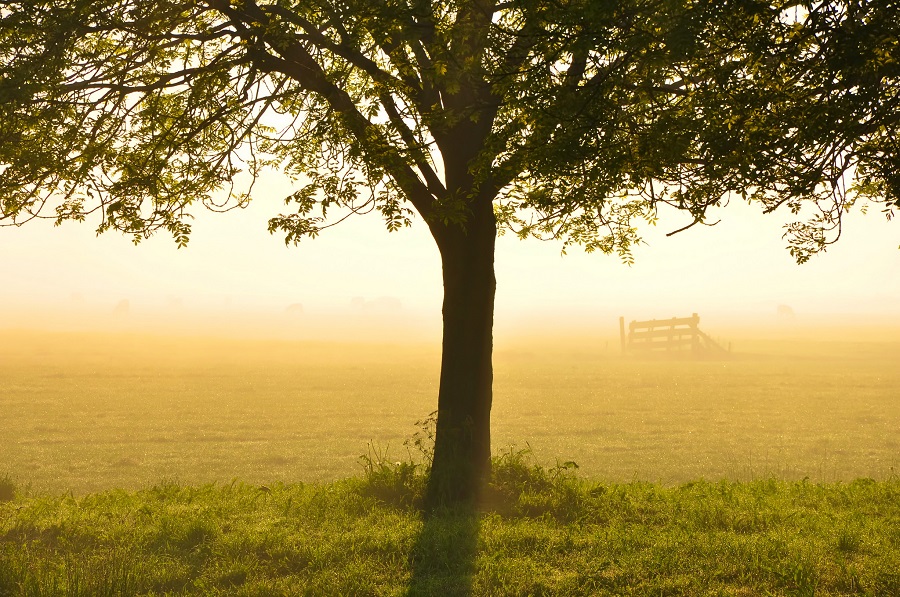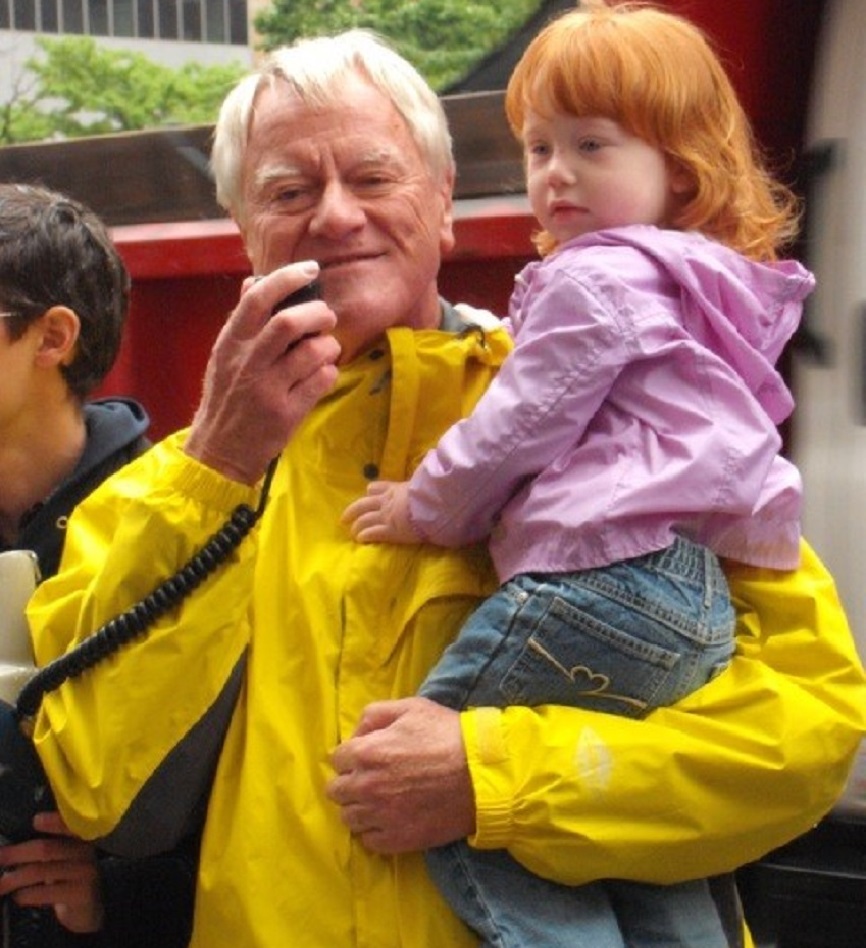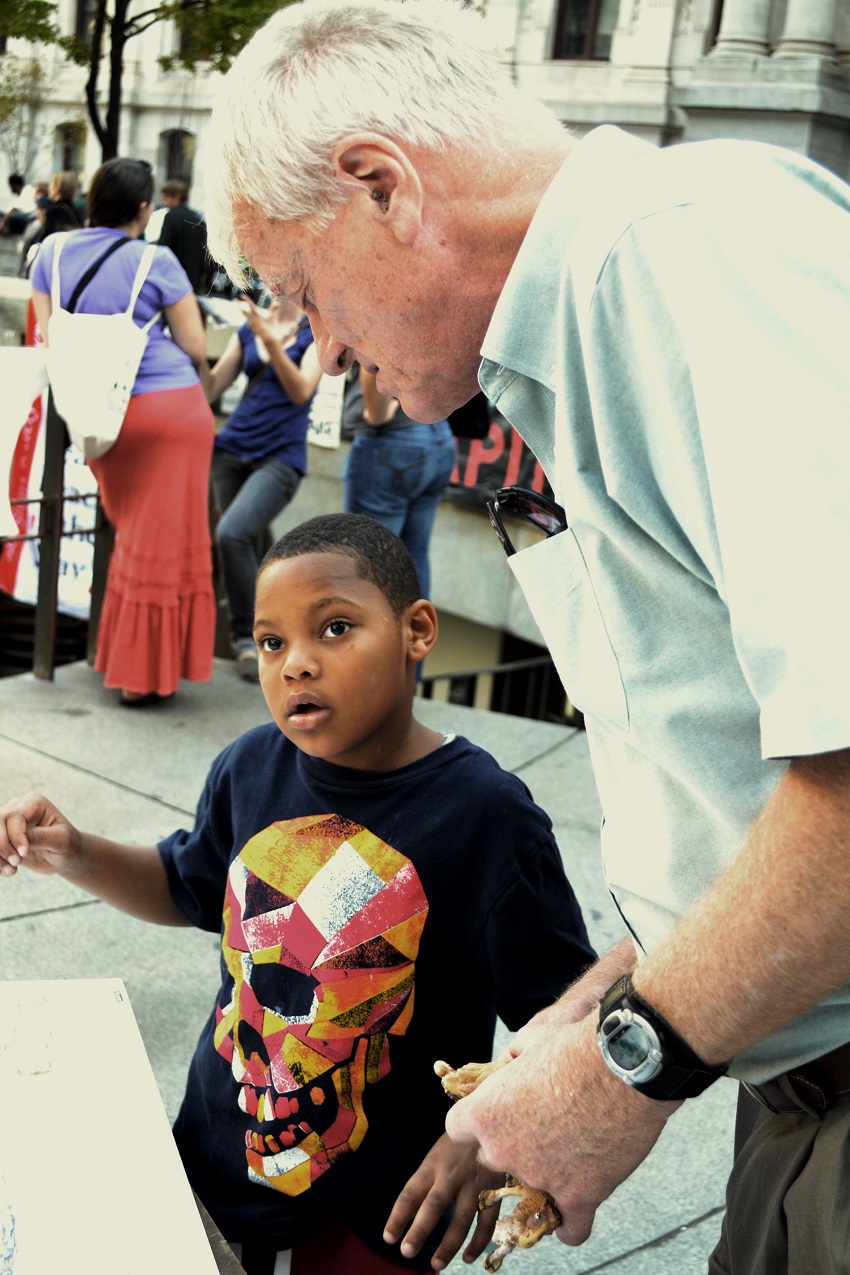
This is the second post in a three-part series from my conversation with Quaker activist, author, and educator George Lakey. The transcript has been lightly edited for clarity and length. Click here for part 1, and here for part 3.
EM: What inspires you to keep [taking on] new projects all throughout your life?
GL: My temperament is such that I have a constant flow of ideas. I'm one of those idea monsters. I'm used to them being all over the lot, from a brilliant idea to a really stupid idea and every shade in between. Once in a while, it's not only an idea, it's [a] "To-Do", like going on the Phoenix [see Prophetic life, part 1]. I don't expect those very often, and those don't come along very often. Sometimes they're somewhat out of the blue, but often they emerge from dwelling in the land of that concern. I'm usually in that concern with others, so I can test it with others, and that's really valuable. Sometimes I've had a clearness committee thanks to my meeting, and that's been helpful.
That makes me an idea monger, and a visionary. I love the big picture, and I love to see Quaker social action happening within a big picture context, that helps to make sense of it. The downside … is getting bored with things after a while. Once the vision is underway, is securely placed, it's moving, it's got a life, we've brought this new Broadway musical to life, there it is on opening night, it's done. Off to the next, time to compose something new. That's me. It's not even a question of discernment. I never ask anybody, "Are we done yet? Can I go?" [laughter] Because my heart just isn't in it anymore once it's been realized.
Also, because I do have some sense of tidiness, I'm interested sometimes in closing down things that I've started because I feel some responsibility. And if something I've started ... that Broadway musical has been doing 265 performances, it's really played out, you know. I'm likely to be the guy who comes back and says, "You know what, cast, we're really done. How about three more weeks to give up your apartment and we'll say we're finished." So that's my nature. [laughter]

EM: Everything you've done over your life, is there a connection between the different projects you've taken on?
GL: There are underlying themes. The first thing was race, that's the first place where I took a public stand, at age 12. I confronted my church congregation [laughter] of white people, and said that God wouldn't really like us to [be] white racists. That was the beginning and end of my preaching career. And then there was, toward the end of high school, civil liberties. I refused to sign the loyalty oath, and took some heat for that. And then there was pacifism and conscientious objection. And then there was race again—race was the first time I was arrested. And then there was working for the yearly meeting peace committee as its executive secretary, and working very hard on youth empowerment, young Quakers having their sense of themselves and their skills nurtured.
And education's a [big] deal for me, obviously. I went from the peace committee to teaching at a place called the Martin Luther King School of Social Change. It was mostly teaching people who had been in the Civil Rights Movement and needed a kind of reboot in order to pick up the next step for them, get more skills and give more leadership in various movements that were going on around the country, not only the Civil Rights Movement. That's where I started a national training network, that was where nonviolence training really got on the map. And training, really that's a cousin of teaching. I had figured out in high school that [teaching] would be a cool way to make a living. I was imagining teaching in high school as my deal. But as my life turned out, it was easier to get teaching jobs in college, or more convenient to do that and do other things as well.
Then it was starting Movement for a New Society [MNS], and that was an organizational experiment. I love organizational experiments! How can we create organizations that are more empowering and more liberating at the same time? In the work with A Quaker Action Group, which was before MNS, it was a very traditional organizational style. We were doing these incredibly unconventional things, like sailing ships to Asia and getting as many Quakers arrested as possible, but we were still very staid in the way we thought about things. Movement for A New Society was a very horizontal organization instead of stratified, and very much into personal liberation and collective living in order to handle our lone ranger tendencies. So that was fabulous, that was a couple of decades of doing that pretty intensively.
[MNS was] also tackling peace conversion. That's where I did an integrative thing in my life. I was brought up working-class, blue collar. I was the first one to go to college from all my family, and I hadn't done anything explicitly until then on behalf of white working class people, or the working class in general. I got to do that through an emphasis on conversion of the war economy into a peace economy.

With the AFSC, we developed a national campaign that knocked out a major weapons system that the Pentagon was drooling about and the Boeing company was so excited about doing. And we did it in the name of transferring skills and money to civilian use through job creation. That was such a wonderful campaign to talk with my dad about because it was very hard for him to get on board with my peace concerns, but as soon as I said to him, "Dad, we're attacking corporations this year, it's so exciting!" He said, “Yes!” That was really nice.
Liberation is really key. I organized with men against patriarchy, men that were distraught because the women's movement was pushing men around, as so deservedly needed to be done. Men were confused and disoriented, and "Oh my God, my girlfriend hates me!" We were doing all these conferences for upset men and getting them to see that it was also in our interest to overthrow patriarchy, so that was a tremendous lot of fun. The frame we were putting that in was liberation, liberation for all, liberation for women, and men, and children, we're all going to come out of this better. It’s going to be suffering to get there, but let's go, let's go, let's do it.
And then gay liberation happened, Stonewall and so on. I was involved with the Gay Liberation Front. I came out to the Religious Society of Friends in a fieldhouse with a thousand Quakers. I came out as gay, bisexual, with my wife, we came out together, it was my sexuality but it was obviously... it was something everyone was wondering about, something people would have worried about, because we were kind of an archetypal Quaker couple.
So liberation's a big theme, education's huge. It took me a while to put that together, but finally did and published a book [Facilitating Group Learning] in which I lay out a pedagogy that I think truly is liberating and is consistent with the anti-oppression theme.
I took Jesus very seriously … he seemed so much about freeing the slaves. He didn't exactly say it, but so much of his action and so much of his rhetoric was about respecting the inner potential of everyone and not freezing them into whatever roles they happened to be brought up in.
Related Content:
George Lakey's prophetic life, part 1: Fear is not there to be enjoyed
George Lakey's prophetic life, part 3: Spirit is not about avoidance of conflict
Extraordinary political opportunity for Quaker legacy of vision